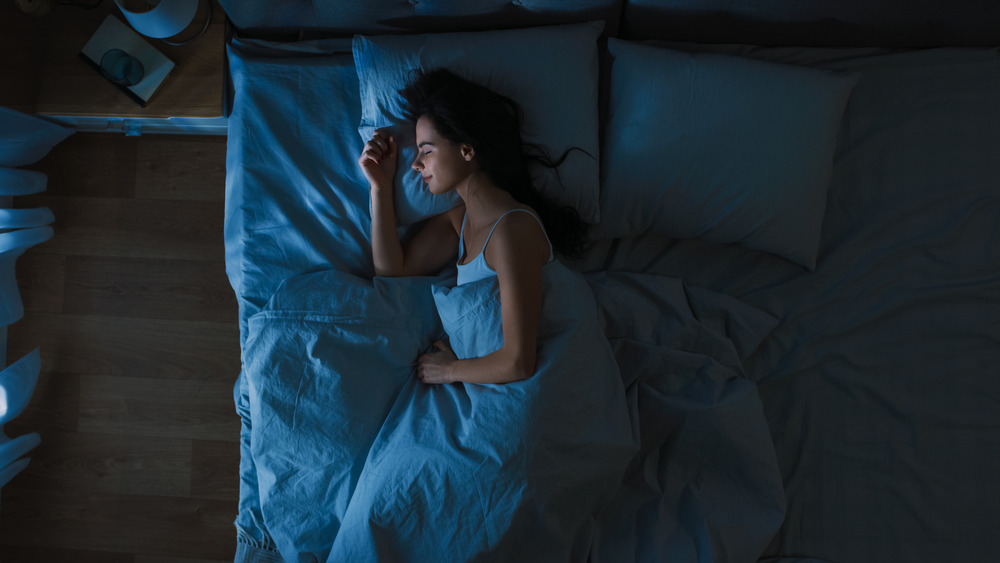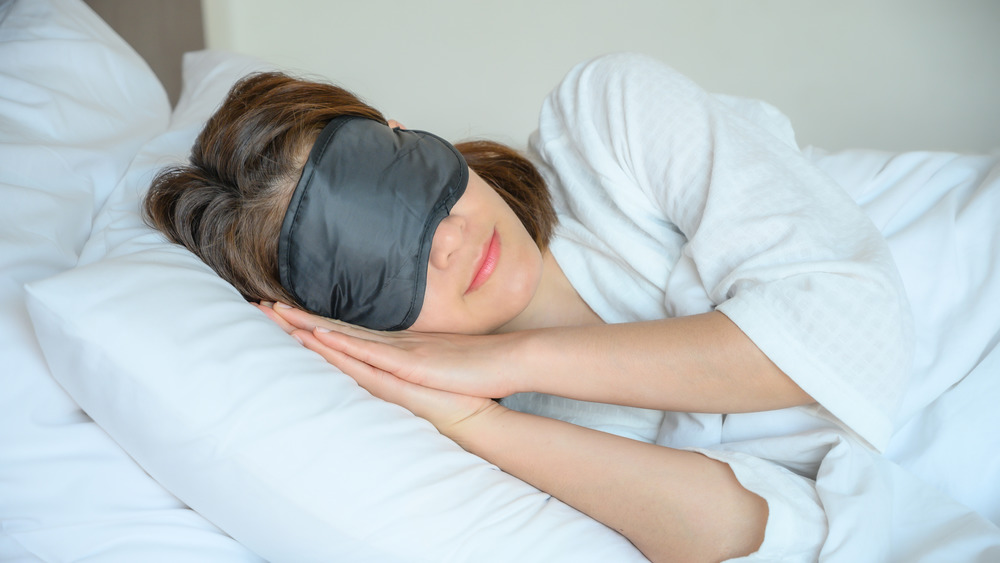The Real Reason You Should Give Yourself A Bed Time
Having a bedtime might sound childish — the best part of becoming an adult was when you were able to make your own decisions about whether or not to watch one more episode of your favorite show, or stay up all night just because you could. But somewhere along the way, your lack of a bedtime may have taken a negative toll on your health. Here's why setting a bedtime, no matter how old you are, can make you happier and healthier — plus a few tips on how to make a bedtime routine work for you.
"The more irregular these sleep patterns, the higher the risk for obesity, hypertension, and elevated blood sugar, and the higher the projected risk of developing heart disease over the next decade," Jessica Lunsford-Avery, Ph.D., assistant professor in psychiatry and behavioral sciences at Duke University School of Medicine, told Healthline, adding, "This suggests that keeping bed and wake times as consistent as possible may have benefits for health."
Those benefits — in addition to disease prevention — can include better productivity in school or at work, improved mood, and even a boost in metabolism (via Bustle). So if you've found yourself struggling to stay focused at work, regularly feeling irritable, or having a hard time losing weight no matter what you do, it may be time to set a bedtime.
How do I set a bedtime?
Often, experts talk about how much sleep you need in order to be healthy — around seven to nine hours each night — but if you're going to get that number of sleep hours, you likely need to set a bedtime. Typically, most of us have a time we need to wake up in order to get to work or school, but rarely do we have an urgent need to get into bed. Think about your current schedule: What time do you wake up most days? Count back from that to choose your bedtime. Try to stick to this schedule, even on weekends, for the best results. And good news: going to sleep at the same time every night will likely make you fall asleep faster.
Once you decide on your new bedtime, use your phone to set a bedtime alarm, and set it for around 15 minutes before you want to be in bed. This way, you have a reminder to start to shut down, get ready for bed, and set anything up that you'll need in the morning, whether that means charging your phone, putting a glass of water by your bed, or laying out a workout outfit (via the American Heart Association).
The American Heart Association also recommends finding a wind-down activity that will put you to sleep, like reading a book (preferably a boring one rather than a thrilling murder mystery). Avoid bright lights in the bedroom, including the blue light emanating from your phone, laptop, or tablet. The smoother you can slip into sleep, the more likely you are to stick with a bedtime routine so you can wake up feeling fresh the next day.


